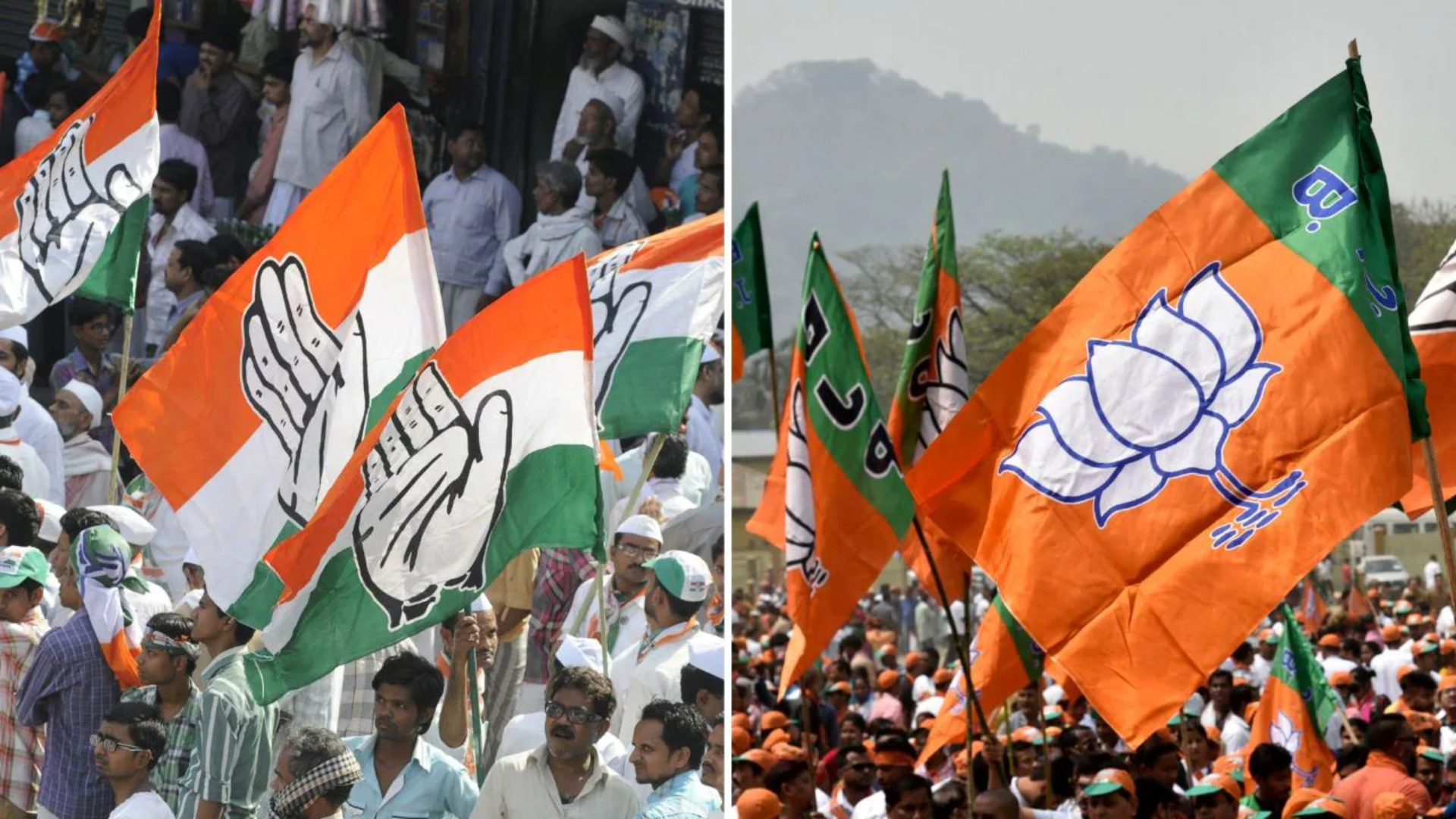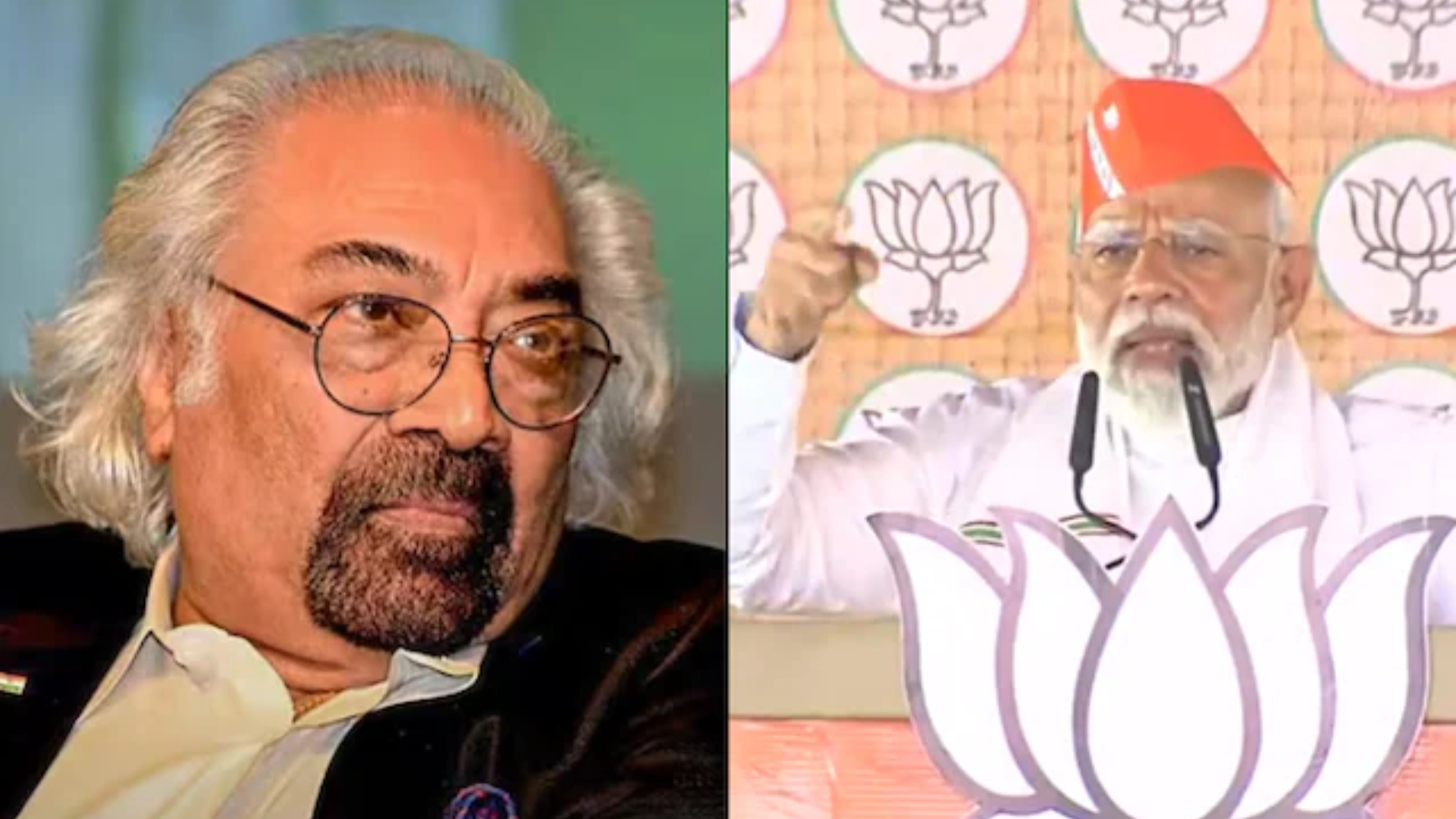



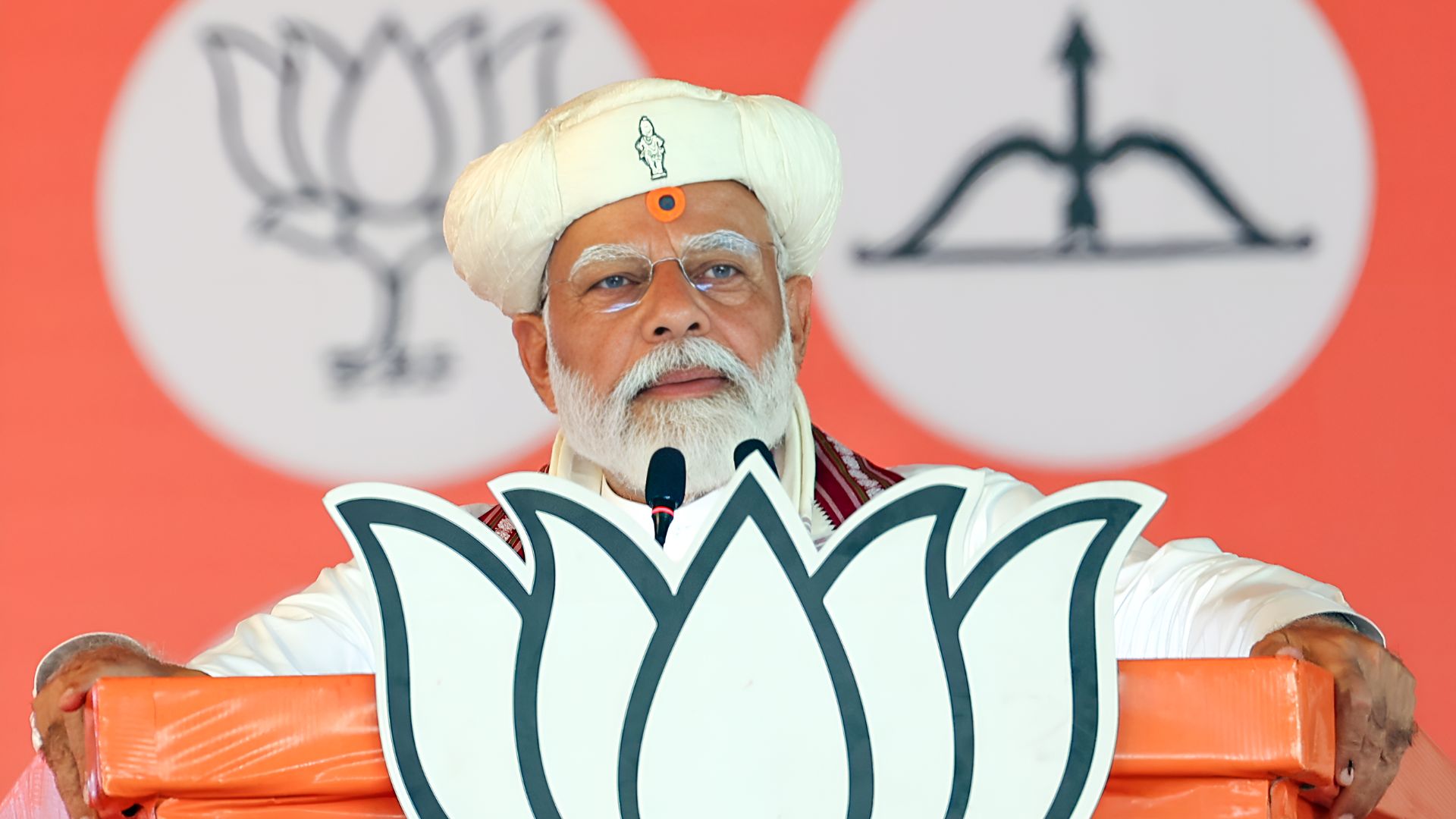


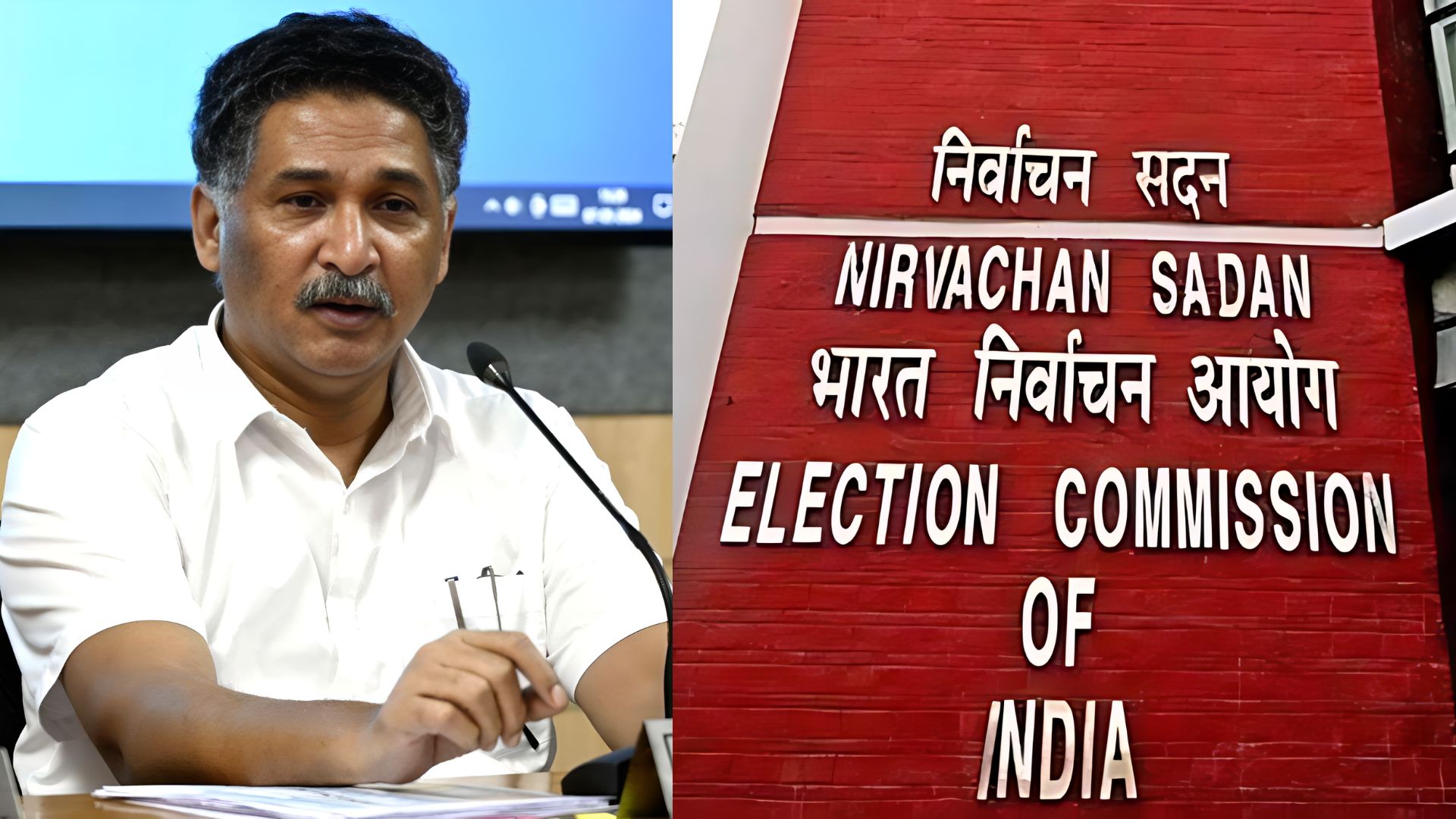

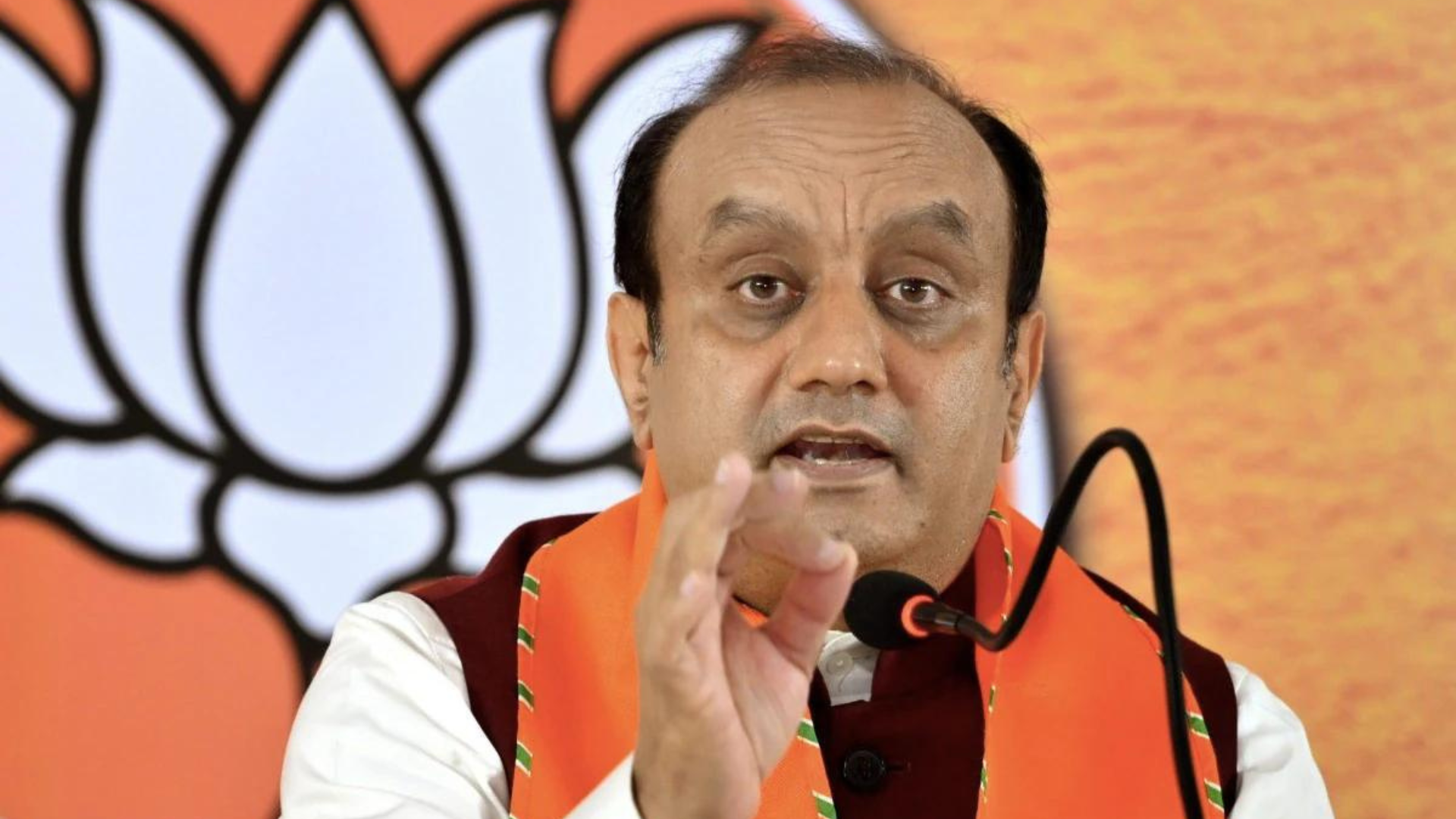
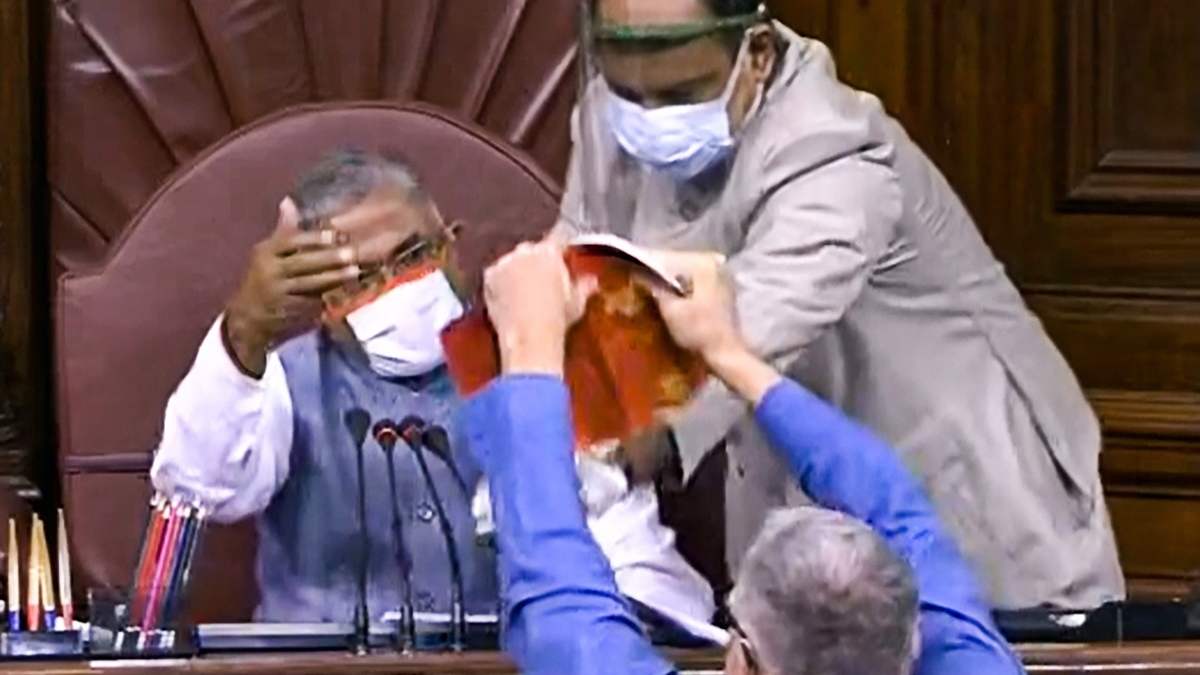
The Monsoon session of Parliament began with the removal (and then halfway reinstatement of) the Question Hour. While it was not apparent at the time, the tone for the session had already been set, as one of partisan bickering and hostility.
For the past week, Indian democracy has been engulfed in a series of vitriolic attacks from one side to the other, stemming from the debate around the controversial farm bills passed in the Rajya Sabha.
While the academic debate around these bills is certainly an interesting and important subject, one should hardly be surprised to find that it has not actually been the subject of any substantial scrutiny. Not by the media, and not by the politicians.
Instead, the farm bill chaos has made obvious the serious problems facing our polity in the present day.
Also Read: Hathras gangrape survivor dies at Delhi’s Safdarjung hospital
Also Read: Amit Shah chairs key review meeting with senior MHA officials
When one ponders why the average citizen is fed-up with politics, and keeps no faith with government, this incident should be considered.
In the 2019 Lok Sabha elections, Congress (and its allied parties), released an economic manifesto containing many of the same policies, enacted by the BJP government in the ‘controversial’ bills.
They actually went a step further, and said they would repeal the Agricultural Produce Market Committees (APMC) Act.
Now though, displaced from the halls of power as they are, the Opposition has forgotten their own policy prescriptions (which, incidentally, they were quite boastful of last year; constantly citing Nobel laureate Abhijeet Banerjee as key in its formation).
Similarly, the allegation that the government would wish to abolish the Minimum Support Price (MSP), holds no water.
Certainly, by not legislating MSPs into law, it seems as though the BJP is signaling a willingness to part with the policy instrument, if market mechanisms are able to succeed. But the same could be said of our previous governments. The world did not start spinning on 26th May 2014. If MSP was such a vital cog in the machine of Indian agriculture, why wasn’t it legislated on before?
Even leaving aside the economic debate around MSP, with our current electoral composition, there is no political party that could get away with ending MSPs. Like it or not, vote banks matter. This is an obvious and apparent truth, which the Opposition has conveniently chosen to ignore, in their thirst for an issue to take to voters.
That thirst, is really the root of the problem. 8 MPs have been suspended for unruly behavior. There are easier (and more effective, for that matter), ways to voice dissent to parliamentary proceedings. Shouting, tearing paper, and breaking microphones serve no purpose, other than to generate a media spectacle. But, of course, that is exactly what they wanted.
Enough about the opposition though, for their foibles are quite well-known at this point. The BJP is not entirely blameless here either. Though they claim to be in possession of a majority, the passing of the farm bills in the way that it took place is undemocratic in every sense of the word. It should not have happened. It is wrong.
Aside from wishing to avoid the obvious embarrassment of having their allies vote against them, the BJP’s rationale is two-fold; the bill is in essence, a good policy measure, which will show some benefit in a few years’ time. They hope to be able to utilize this benefit as a talking point in the next election cycle.
This ties into the second part; a desperate ‘Hail Mary’ by the government to fix the economy. Try as they might, the BJP has been unable to steady that ship. With COVID-19 inducing economic lockdowns, they are hoping to subsume all hitherto economic failure into the fault of lockdowns, and start anew. The farm bills are an attempt at a fresh start.
Getting back to the matter at hand, in the past few days, the government has passed 15 bills (some, hugely contentious) without the opposition present, as though it is simply business as usual. This negates the entire point of having an elected democracy. If we have no opposition present, then we have no democracy.
On this point, the counter-argument that BJP has made is a fair one. If the opposition decides not to show up, the country cannot stop functioning.
However, if the government does truly carry such magnanimous concern for the functioning of our country, could it not have allowed for an extra day of debate on the farm bills (which are a big structural shift in Indian economic policy)?
Could they not now, attempt to bring the Opposition to the table, and show some willingness to take seriously their concerns, in order to resume some kind of normal governance?
So, who do we support in this tumultuous affair? Do we stand by our government, which legislated a good policy through nefarious and immoral means, setting adrift the institutions and ideals of democracy in the process? Do we support a decidedly disloyal opposition that though hell bent on gaining power, principles, policy, and scruples be damned, stuck up for democracy?
There are no good options here, and yet we must choose.
Also Read: India’s Covid-19 tally crosses 61L mark with spike of 70,589 new cases





